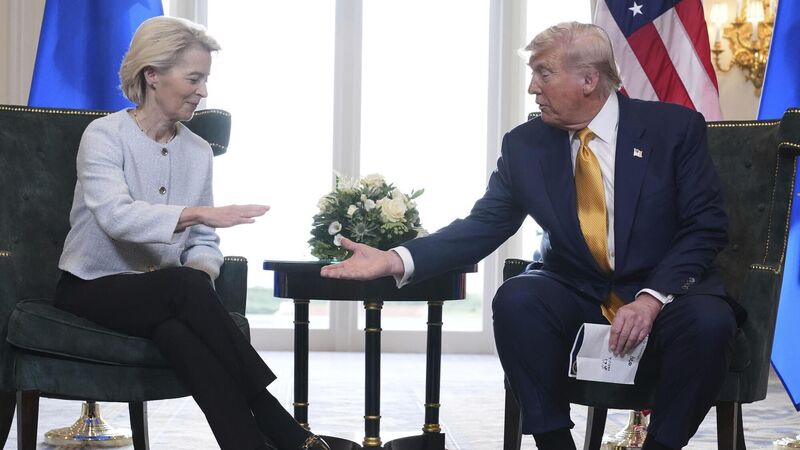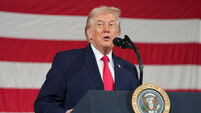EU still waiting on US for joint statement on tariffs

UC president Donald Trump and European Commission President Ursula von der Leyen shake hands after reaching a trade deal in July. On Tuesday, the European Union could not say when a joint statement on tariffs with the United States would be ready. Picture: AP Photo/Jacquelyn Martin
The European Union could not say when a joint statement on tariffs with the United States would be ready, nor when the White House would issue an executive order on European car import duties, a spokesperson said on Tuesday.
The EU and US reached a framework trade agreement at the end of July but only the 15% baseline tariff on European exports had so far come into effect, as of last week. EU officials previously said a joint statement would follow the deal "very soon" along with executive orders from US president Donald Trump on key carve-outs.











